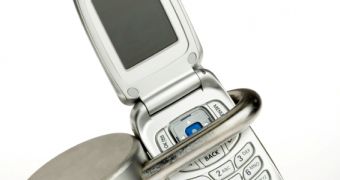In early 2013, the United States decided that the unlocking of mobile phones was an illegal action, claiming that users already had a great deal of choices when they grabbed a handset that wasn’t locked to a carrier’s network.
However, users appear to disagree, and the tendency is to break that rule, in an attempt to gain more freedom even after purchasing a carrier-branded device.
Apparently, the unlocking of handsets has become even more popular following said decision, at least this is what VentureBeat reports.
Speaking to Darren Kingman of Mobile Unlocked, a UK-based website that enables users to unlock their mobile phones remotely, the news site reports that the number of requests for removing the carrier lock on handsets has increased by 71 percent over the past few months.
Via Mobile Unlocked, users receive an unlock code through which they can use their devices on any operator (they will need to provide details such as phone model and the carrier they have purchased the handset from).
Apparently, the UK website did not promote its services in the United States, but consumers flocked to its services after being legally prevented from unlocking their devices. According to Darren Kingman, 7-8 percent of the website's traffic came from the US during the analyzed timeframe.
Furthermore, VentureBeat notes that Google searches on methods to unlock phones have been skyrocketing lately, and that it all started as soon as the U.S. Library of Congress announced its decision on the matter.
Given that in other parts of the world the unlocking of a mobile phone is completely legal, it makes little sense that the US decided against it.
However, it appears that things might change in the users’ favor in the not too distant future. The White House has recently agreed with a petition called Make Unlocking Cell Phones Legal, though it could take up to several months until the legislation on this is completed. Stay tuned for more on this.

 14 DAY TRIAL //
14 DAY TRIAL //